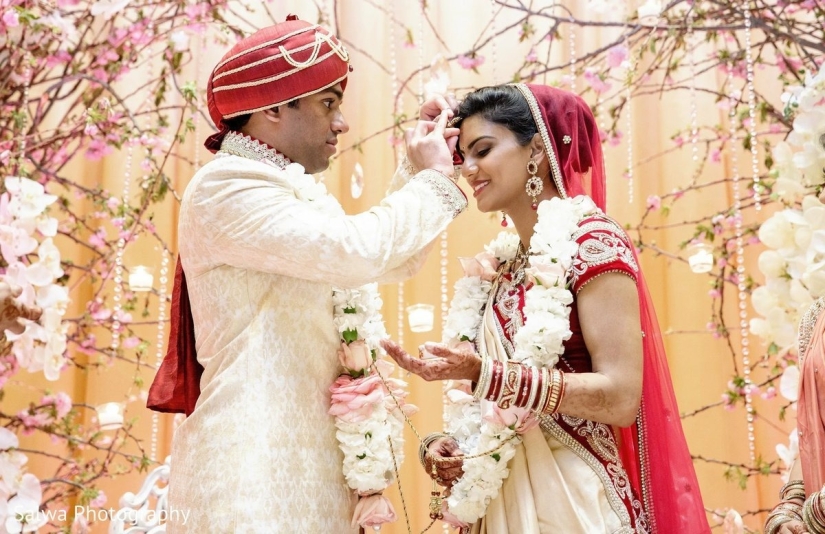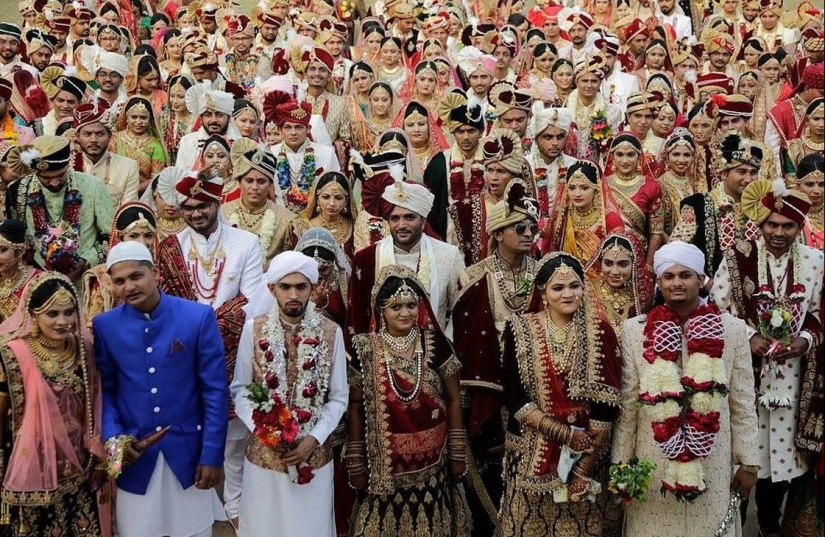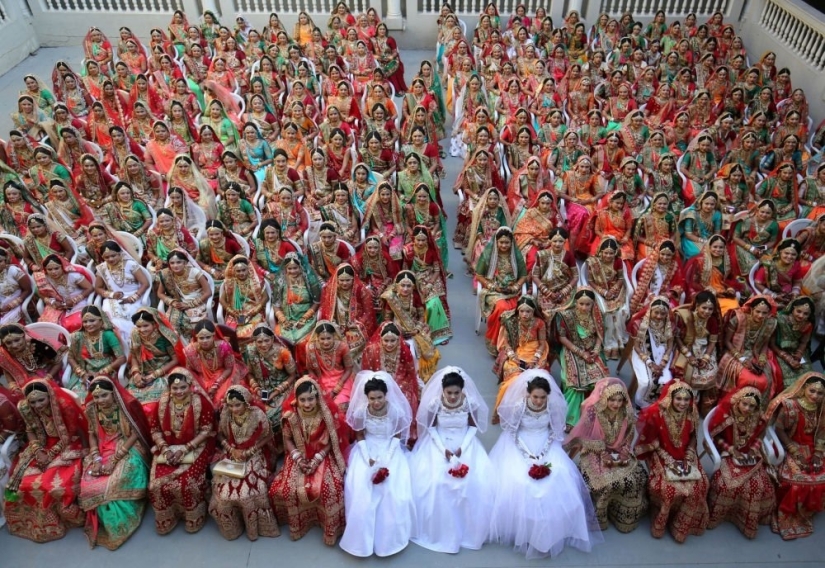How Billionaires Help Indian Brides: Collective Wedding Traditions in India
Categories: Asia | Culture | People | Relationship | Society | Tradition | World
By Vika https://pictolic.com/article/how-billionaires-help-indian-brides-collective-wedding-traditions-in-india.htmlWith a sweet paradise and in a hut.
With this simple phrase, many are trying to popularize love, showing that money is not the main thing. But sometimes without this very money, there will be not only a hut but also a sweet one because there simply won’t be enough finance for it. So many girls in India are faced with a real problem: there is simply no money for a wedding.
4 PHOTOS

1. For a common understanding, in India, it is the bride's family that pays for the wedding and issues the dowry. And although no dowry is officially required by law, moreover, it is not welcomed, and many families still use this practice. That's really true: it is impossible to cancel a tradition that has been formed by generations in a couple of years. But times have changed, so the traditional way of life is not entirely relevant - this creates problems.

2. If the bride has no money, if her father did not live to see her wedding or went bankrupt, there may not be a wedding at all. Somewhere grooms will refuse such a bride, and somewhere - parents will not give a blessing. So what is a couple to do? Where to run and how to marry?
Until recently, there was simply no way out. However, since 2008 (and fully since 2010), Indian businessmen began to help the poor by arranging collective weddings. And we are not talking about 10-15 couples, but about several hundred spouses who simultaneously marry under the patronage of billionaires.
On average, about 200-250 couples marry in one such ritual. They are provided with everything: clothes, jewelry, food, and payment for the ceremony itself. Plus, each bride receives a solid gift from the sponsor: translated into rubles - 300-450 thousand, depending on the year and the person arranging the celebration.

4. Of course, it is impossible to hold such weddings every day, so they are arranged no more than once a year, and everyone comes to the weddings themselves: the poor, rare Christians and people with a positive HIV status.
Over time, other high-ranking members of Indian society joined this "project": they also began to sponsor weddings. So, now a collective wedding in India is not an event at all. And even though most of them have become less large-scale - only 30-50 pairs, the essence of this has not changed. Young people still declare their love for them, forming a new cell of society.

5. But why is all this? What is the interest of sponsors? Tax relief? PR? Laundering of money? In fact, everything is much more interesting. Investors claim that such weddings are simply their civic duty. They have the resources to help people, and they... help. Free of charge, just for the sake of karmic balance.
And it sounds reasonable. Still, in India, karma is really important. Therefore, billionaires can really help simply at the call of their hearts, hoping that a good deed will someday return to them.
Keywords: Billionaires | India | Indian brides | Wedding traditions | Indian traditions | Culture
Post News ArticleRecent articles

It's high time to admit that this whole hipster idea has gone too far. The concept has become so popular that even restaurants have ...

There is a perception that people only use 10% of their brain potential. But the heroes of our review, apparently, found a way to ...
Related articles

Photographer Supernaw das was born in Calcutta, studied at the School of visual arts in new York. For his graduation project, he ...

It's amazing, but there are still places on our planet where holiness is not an empty phrase, and in order to achieve it, people ...

Do you think that a studio apartment can't be a tropical garden? The designers of one of the Indian architectural studios have ...

New Year's is a time to surprise and delight loved ones not only with gifts but also with a unique presentation of the holiday ...